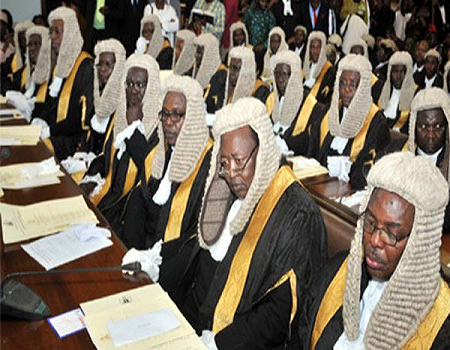The Kaduna State Internal Revenue Service (KDIRS) on Thursday trained 20 Chief Magistrate Court Judges designated to adjudicate on resolving tax-related disputes in the state.
The Legal Adviser to the KDIRS, Mr Francis Kozah, said at the opening of the training in Kaduna on Thursday that the goal was to equip the judges with relevant tax laws and procedures in line with best global practices.
“The laws governing taxation in Kaduna State, particularly Personal Income Tax and Kaduna Tax Codification and Consolidation Law 2016, made adequate provisions for avenues for redressing taxpayers and tax authority’s grievances or disagreement.
ALSO READ: Armed bandits killed 17 vigilante in Kaduna ― Police
“Similarly, the International Monetary Fund (IMF) visited us in 2018 and assessed our mechanism for redressing tax grievances using the World Bank Tax Administration and Diagnostic Assessment Tools.
“The essence was to determine if our tax administration, with particular reference to mechanism for redressing tax grievances, was in line with international best practices.
“IMF scored KDIRS average and recommended that the service do the needful to meet global best practices,’’ the legal adviser said.
He said that in response to these calls, the Tax Appeal Tribunal in the state was reconstituted to adjudicate on tax issues.
He went further that “Also, Section 49 of the Kaduna State Tax Codification and Consolidation Law 2016 empowers the chief judge to appoint courts of competent jurisdiction to preside over tax matters.
ALSO READ: Court remands 17 in prison for Ibadan mayhem
“We approached the chief judge and in compliance with the law, he designated 20 Chief Magistrate Courts to adjudicate on tax issues in the state.
“This training is, therefore, the key to empower the judges with relevant knowledge to enable them to discharge their duties effectively.
“I see this as a leap in fast-tracking tax disputes in the state, which to me is a win-win for taxpayers and tax administrators in the state.’’






